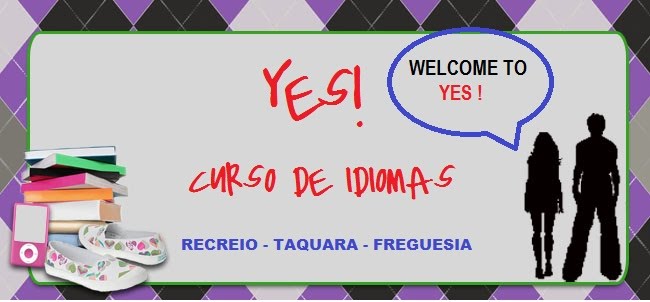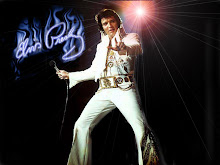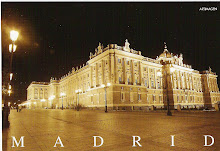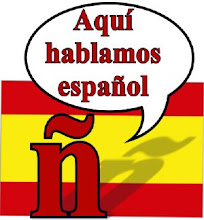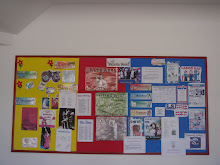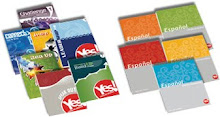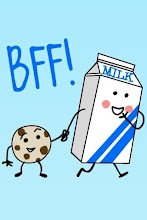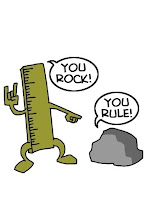PREPOSITIONS
Write on your answer sheet one word which would correctly fill the blank. If no word is needed, put a dash (-).
Example: I didn’t pay very much ..... this jacket.
Answer: for
01- What programmes are ....... the radio tonight?
02- He was ....... bed when I called.
03- At sea level water boils ........ 100* C.
04- We arrived at the theatre ........ exactly six o’clock.
05- He came ........ train as his car had broken down.
06- Most people usually sit .... a table to have their meals.
07- The socks he is wearing were made ....... hand.
08- Addis Ababa is 2400 metres ....... sea level.
09- He sold his books ....... a lot of money.
10- She had one hat in her hand and another ....... her head.
Choose from the alternatives the one which best fits into the blank and write its letter on your answer sheet.
Example: He was just thinking....his mother when she came in.
A) to B) of C) from D) in
Answer: B
01- I shall reply ...... your letter as soon as I receive it.
A) for B) - C) at D) to
02- They accused the prisoner ...... stealing jewellery.
A) on B) from C) - D) of
03- That boy is so dull he never joins ...... our games.
A) on B) into C) in D) with
04- When she was a little girl, she was always quarrelling....her sisters.
A) with B) to C) at D) -
05- The President left ...... America this morning.
A) to B) for C) onto D) by
06- The inspector arrived ...... the school late on Monday morning.
A) - B) to C) at D) of
07- He hid the knife ....... his small son.
A) out of B) from C) to D) off
08- Although his parents warned him ....... what would happen, he
continued to disobey them.
A) off B) of C) on D) to
09- We succeeded......beaking open the door after trying for half an hour.
A) on B) of C) in D) to
10- He has been looking ...... a wife for several years now.
A) - B) of C) on D) for
11- That shed protects the animals ....... the rain.
A) from B) of C) out of D) on
12- You must apply ...... that job before the end of the month.
A) to B) for C) on D) -
13- Six convicts escaped ...... that prison last month.
A) from B) of C) off D) out
14- Very few people have never heard ........ Shakespeare.
A) of B) on C) off D) by
15- It is only small children who believe ....... fairies.
A) on B) to C) in D) over
16- I’ve worn ....... two pairs of shoes this year.
A) up B) off C) on D) out
(01)
17- Although he was not responsible, he was blamed ...... the damage.
A) on B) about C) in D) for
18- She got married because she preferred bringing up children ......
teaching.
A) from B) over C) to D) on
19- The thief was sentenced ....... five years imprisonment.
A) to B) - C) of D) for
20- He is well qualified ...... his new post.
A) to B) for C) on D) of
21- Farmers have been waiting.......the rains to start for over six weeks.
A) to B) for C) - D) from
22- Our team aimed ....... a much higher score than was possible.
A) - B) at C) to D) after
23- The tadpoles in the lake have now changed ...... frogs.
A) into B) on C) towards D) for
24- There isn’t time to refer ...... a dictionary every time we come
across a word we don’t know the meaning of.
A) from B) - C) to D) in
25- He is always boasting.......the sucess he had when he was a young man.
A) off B) - C) for D) of
Choose from the alternatives the one which best fits into the blank and write its letter on your answer sheet.
Example: He was just thinking ....... his mother when she came in.
A) to B) of C) from D) in
Answer: B
01- Many Nigerians were converted ........ Christianity in the nineteenth
century.
A) into B) to C) over D) towards
02- He doesn’t have much time to attend ...... his garden these days.
A) for B) on C) to D) -
03- The peasants struggled ...... better conditions.
A) for B) of C) on D) by
04- No candidate has yet been selected .... the vacancy.
A) for B) to C) on D) -
05- As he was going to the cinema in his car, I asked him to pick me .....
on the way.
A) - B) off C) up D) out
06- My brother has turned ...... the offer of a job with a newspaper.
A) out B) - C) down D) off
07- The noise of the traffic prevented us......hearing what the man said.
A) of B) from C) off D) to
08- A notice on the gate told us to beware ...... the dog.
A) of B) about C) to D) at
09- The First World War broke ...... in 1914.
A) - B) on C) into D) out
10- I must remember to congratulate your uncle ...... his new appointment.
A) on B) of C) for D) to
11- Our teacher didn’t comment........our work when he returned it to us.
A) - B) to C) over D) on
12- Despite the need for more teachers, the teacher training college is to
be reduced ........ size next year.
A) on B) for C) in D) down
13- Students who forgot to bring their identity cards were excluded .....
the exam.
A) from B) out of C) - D) off
14- The headmaster threatened boys who were repeatedly late.....suspension
from school.
A) by B) of C) with D) to (02)
15- That man has been charged ....... three crimes.
A) of B) with C) on D) by
16- My sister was knocked ...... while crossing the main road.
A) on B) down C) in D) -
17- His broken leg is nothing to joke ......
A) for B) on C) about D) -
18- Some candidates withdrew ...... the examination because they knew they
couldn’t pass.
A) out of B) from C) off D) out
19- The lawyer who is dealing ...... my case is very conscientious.
A) on B) in C) - D) with
20- The police are enquiring ...... his connections with the criminals.
A) on B) into C) for D) over
21- I didn’t greet you because I mistook you ...... somebody else.
A) for B) as C) of D) by
22- Most of Dickens’novels have been translated ...... Russian.
A) into B) in C) to D) for
23- I was introduced ........ his sister at a party.
A) - B) towards C) at D) to
24- I am very disappointed ...... the new radio I’ve bought.
A) of B) from C) with D) on
25- When he became a soldier, he was supplied ...... a gun.
A) for B) by C) on D) with
Write on your answer sheet one word which would correctly fill the blank.
If no word is needed, put a dash (-).
Example: That book belongs ...... me.
Answer: to
01- I’m going to Accra, and I don’t think I shall return.....here before
the end of the month.
02- He was operated ...... for appendicitis last Saturday.
03- Some people were discussing ...... the latest news.
04- A student persisted ...... asking silly questions even though the
lecturer told him to keep quiet.
05- The bill for the party amounted ........ much more than we could pay.
06- A shop in the main street was struck ...... lightning.
07- The little girl burst......tears when she heard of her mother’s death.
08- He got rid ....... his textbooks after the exam.
09- I don’t know what has become......the boy who was expelled from school.
10- He will have to answer ....... his actions one of these days.
Choose from the alternatives the one which best fits into the blank and write its letter on your answer sheet.
Example: He is very interested ........ history.
A) in B) on C) for D) about
Answer: A
01- He has been absent ...... school for over a week.
A) out of B) off C) from D) away
02- She is delighted ...... her new dress.
A) of B) from C) off D) with
03- I have been friendly ....... that family for ten years.
A) of B) on C) with D) by
04- I’m not very pleased ...... the mark I got in last week’s test.
A) of B) from C) with D) for
05- I feel very sorry ....... Samuel; he is always unlucky.
A) to B) at C) of D) for
06- There is no excuse ....... coming late.
A) for B) on C) of D) from (03)
07- She seems to be very proud.....the fact that her brother is an officer.
A) to B) of C) for D) from
08- There is no proof ..... his guilt and he should be released.
A) for B) to C) of D) on
09- He seems to be very satisfied ...... his new job.
A) with B) for C) of D) on
10- The top of Kilimanjaro is covered ....... snow.
A) of B) from C) to D) with
11- I wouldn’t like to tell you my opinion ...... that man.
A) to B) of C) over D) for
12- I should be glad ...... the chance of meeting him.
A) for B) of C) on D) to
13- He never mentions his brother because he is ashamed ...... him.
A) from B) to C) of D) on
14- She is envious ...... the good luck I’ve been having lately.
A) of B) from C) to D) by
15- His father was very angry ...... him for having got a bad report.
A) with B) to C) on D) towards
16- She has been ill ...... pneumonia for several days.
A) over B) of C) for D) with
17- I’m not responsible ....... what my brother does.
A) about B) on C) of D) for
18- He is very slow ...... looking up words in the dictionary.
A) at B) to C) on D) for
19- Some people are never content ....... what they have.
A) with B) of C) for D) about
20- He lived ...... fear of losing his job.
A) on B) in C) under D) for
Write on your answer sheet one word which would correctly fill the blank. If no word is needed, put a dash (-).
Example: He travels to work ...... bus.
Answer: by
01- He claims that he is related ...... the Prime Minister, but I don’t
believe him.
02- He was found guilty ...... murder.
03- He said he would be very grateful ...... any help we could give him.
04- It was very kind ...... you to help me.
05- She learnt several poems ...... heart.
06- While driving across the desert, he suddenly had a longing ....... a
glass of orange juice.
07- He will be dependent.......his brother for money while he is on holiday
08- His likeness ....... his brother is quite remarkable.
09- The new road was built ....... the expense of the local people.
10- Einstein was famous ....... his theory of relativity.
